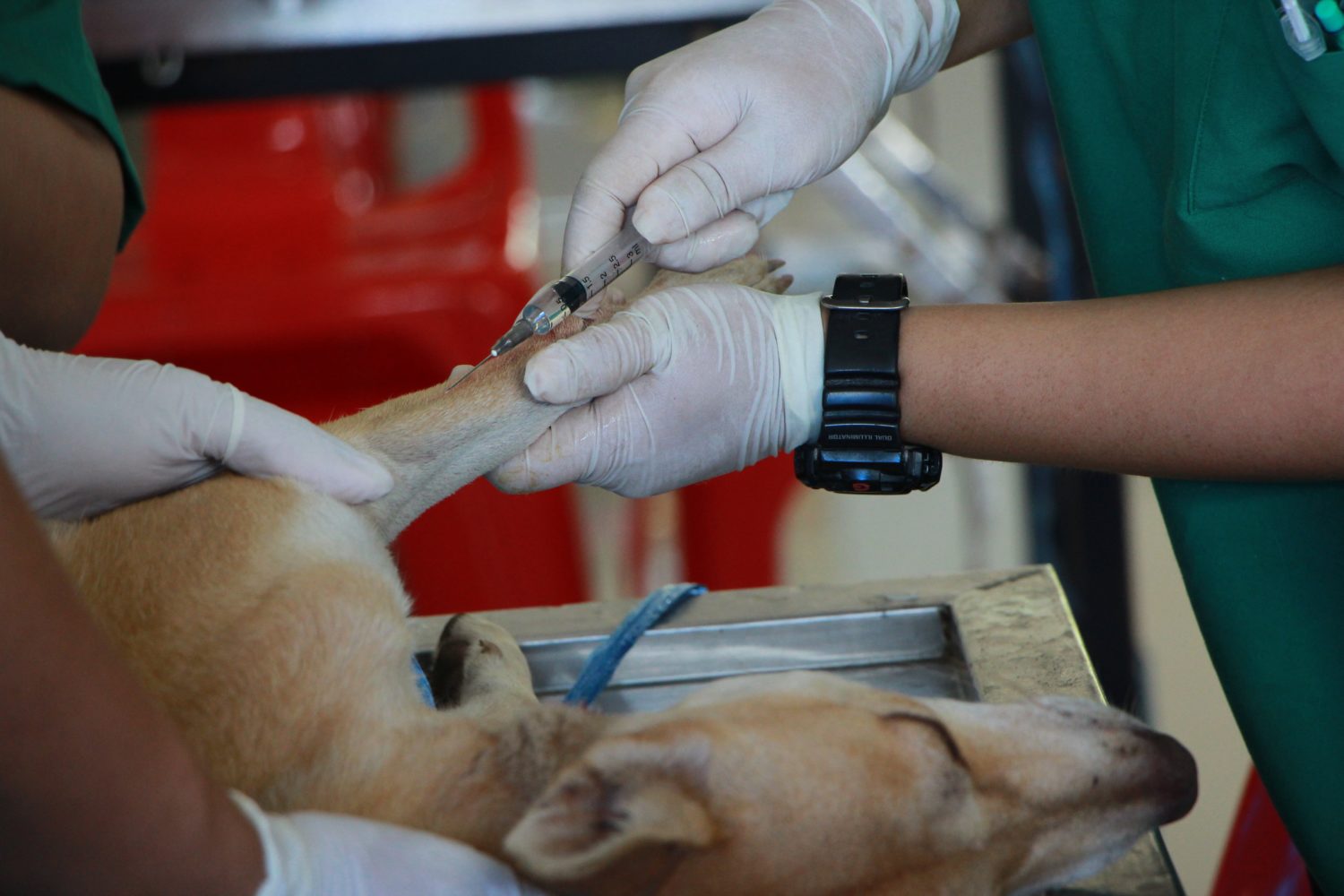By: Erin Scott, CVT VTS (ECC), RECOVER ALS/BLS Certified Instructor
It takes a strong person to admit when they were wrong. At least I’d like to think so, because I have to
admit that I did CPR wrong for a long time. Honestly, I was just never taught how to do it. No one
took the time to teach or correct my form, my compression depth, or compression rate. Like many
things in emergency veterinary medicine, I learned through “trial by fire.” I simply had to jump in and
try to figure it out for myself. I have done CPR dozens of times over the course of my career, thinking
I was doing a pretty good job… until I was trained by a CPR professional. Only then did I learn what I
should have learned a decade earlier: how to properly do CPR.

It’s no secret that most animals who experience cardiopulmonary arrest (CPA) don’t survive. The
2012 RECOVER initiative set out to review literature and implement standard guidelines for
veterinary professionals to follow. After the introduction of similar guidelines in human medicine,
survival rates jumped to 20%. Just as every human medical professional, babysitter, and teacher should
be CPR certified, so should every veterinary professional. A streamlined, professional team is more
effective at helping pets, more reassuring to owners of critical pets, works better together, and
communicates more effectively.
Increased survival rates are the most obvious benefit of having your team professionally trained in
CPR. A well-trained team will be able to recognize signs of imminent arrest, diagnose CPA, perform
effective CPR, and provide appropriate aftercare if return of spontaneous circulation (ROSC) is
achieved. This gives the pet the best chance at surviving their arrest event.

But, it shouldn’t be forgotten that almost every pet is attached to an owner. And, in many ways, CPR is more about the owner than their pet. An arrest event is exactly the opposite of euthanasia. While some euthanasias are on an emergency basis, most are planned events. While the owner may only have a short time to come to peace with the event, it’s still on their terms. An arrest is usually unexpected, whether it’s from trauma, critical illness, or anesthesia. This forces the owner to experience the entire grief cycle in a very short amount of time. Denial, anger, bargaining, depression, and finally acceptance happen very rapidly, anywhere from 15 minutes to an hour. A team that has been professionally trained not only handles the arrest event well, but they are better equipped to handle the owner’s grief.
A team that can run an autonomous code allows the clinician in charge to inform the owner immediately, give regular updates, and guide the owner through the accelerated grief process. If the arrest occurs outside of the clinic, having a knowledgeable team member to guide a panicked owner through CPR over the phone gives the owner back some sense of control. It allows them to feel like they have done everything they could, which is especially healing after a traumatic loss.

Besides knowing the proper steps and procedures of an arrest event, the staff benefits from
professional training in various ways. Because the RECOVER guidelines put forth a set flow of events,
any adequately trained veterinary professional – from a kennel technician to an office manager – is
allowed to “run the code.” Besides freeing up the clinician and increasing chances of survival from
immediate initiation of CPR, this encourages leadership and learning among the support staff. And
because CPR requires training and drills, a staff well-trained in CPR experiences more cohesiveness
and increased feelings of teamwork, which is sometimes lacking in clinic environments. CPR training can be viewed as team building events, where the staff must learn to communicate effectively, trust each other, help when needed, and work together to achieve a collective goal.
CPR training is first and foremost about increasing survival rates in our companion animal patients.
After all, saving animals and nurturing the human-animal bond is why we do what we do. However,
the hidden benefits of staff professionally trained in CPR are not often discussed. Not only do our
clients benefit from a knowledgeable, well-oiled machine, but the entire team benefits as well.

Erin is an ECC specialty certified technician living in beautiful Fort Collins, Colorado. She shares her home and heart with her boyfriend, Bradford, and their chatty kitty, Kevin. While dangerously close to a workaholic, Erin and Bradford still find time to travel together. Erin also enjoys being an amateur home chef, taking photographs, and riding her horse, Katie. Professionally, Erin is passionate about the subject of technician empowerment.
